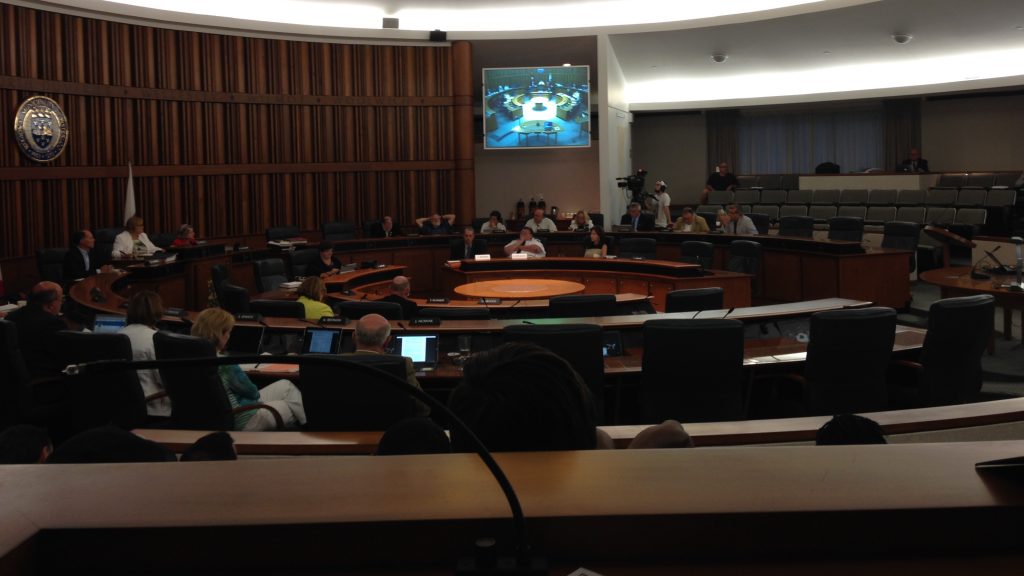Turkey’s deputy PM gives ‘standing man’ protest nod of approval
Posted Jun 19, 2013 05:09:23 AM.
This article is more than 5 years old.
ANKARA, Turkey – Turkey’s deputy prime minister gave a nod of approval on Wednesday to a new form of peaceful resistance that is spreading through Turkey.
Although police dispersed pockets of protesters who set up barricades in two Turkish cities overnight, the sometimes violent anti-government demonstrations have largely given way to a passive form of resistance, with people standing motionless.
Hundreds of demonstrators stood still for hours in squares on main streets in several cities, mimicking a lone protester who started the trend Monday on Istanbul’s Taksim Square and has been dubbed the “standing man.”
In the first direct government comment on the new style of protest, Deputy Prime Minister Bulent Arinc told reporters that such standing protests are peaceful and “pleasing to the eye.” However, he also urged demonstrators to avoid obstructing traffic and endangering their own health.
“This is not an act of violence,” Arinc said. “We cannot condemn it.”
However, Hasan Kilic of the Istanbul Bar Association said as many as 68 people who have taken part in the widespread protests were in custody for alleged links to “terror” groups, while 33 people were being questioned by authorities and faced possible organized crime charges.
More than 3,000 people have been detained then released since the anti-government demonstrations began late last month, said the Human Rights Association.
On Monday night, police dispersed hundreds of standing protesters at Taksim Square, but are now allowing such demonstrations to continue unhindered.
But not everyone is in favour of them.
On Wednesday, eight people, wearing T-shirts that read: “man standing against the standing man” stood in front of “standing man” protesters in an apparent pro-government demonstration. They stayed for half an hour before departing Taksim in taxis.
Turkey’s widespread anti-government protests erupted across Turkey on May 31, when riot police brutally cracked down on peaceful environmental activists who opposed plans to remove trees and develop Gezi Park, which lies next to Istanbul’s famed Taksim Square.
The protesters also have expressed discontent with what they say is the gradual erosion of freedoms and secular values during Prime Minister Recep Tayyip Erdogan’s 10 years in office.
On Tuesday night, police used water cannons to scatter hundreds of protesters who had set up barricades in Ankara, the capital, and in Eskisehir, 140 miles (230 kilometres) west, the state-run Anadolu Agency reported.
Since the unrest began, more than 7,500 people have been injured and at least four people killed: three demonstrators and a police officer. Authorities are investigating whether a fifth person who died was exposed to too much tear gas.
Erdogan, who has long won praise for steering Turkey toward strong economic growth and raising the country’s international profile, has seen his image dented over his government’s handling of the unrest. The events of the past two weeks also have strained relations with the European Union, which Turkey is hoping to join.
The European Parliament last week sharply criticized what it called disproportionate force used by police against demonstrators.
German Chancellor Angela Merkel, who has opposed Turkey’s EU membership, said she was “appalled” by images of the crackdown, and EU lawmakers scrapped a visit to Turkey planned this week.
Nevertheless, a senior official from Erdogan’s Islamic-rooted Justice and Development party said Wednesday that Turkey still wants to join the bloc.
“Our citizens should not be demoralized by statements from the EU,” said Huseyin Celik, the party’s deputy chairman. “We are stuck to the European Union process, and we will take it to the end. If, at the end of the process, they don’t want us, then it’s up to them.”
Erdogan has blamed the protests on a plot to bring down his government — elected with 50 per cent of the votes — and has constantly lashed out at foreign media and social media for their reports about the protests.
Arinc, the deputy prime minister, on Wednesday denied that Turkey would restrict the use of Twitter or other social media, but he said his government could consider enacting legislation in a bid to deter users from “inciting crime, spreading lies and disinformation.”
“Social media are a part of modern life and none of us can remain outside of it,” Arinc said. “But there have to be some deterrents.”
Erdogan has branded Twitter the “worst menace” to society and criticized it for spreading “lies.” Turkish media devoted scant coverage to the protests when they first erupted, but many citizens turned to social media for news of the demonstrations. Dozens of protesters were detained — and later released — for allegedly “inciting” people to riot through social media postings.
Erdogan’s government has closed down access to Internet sites, including YouTube, in the past.










